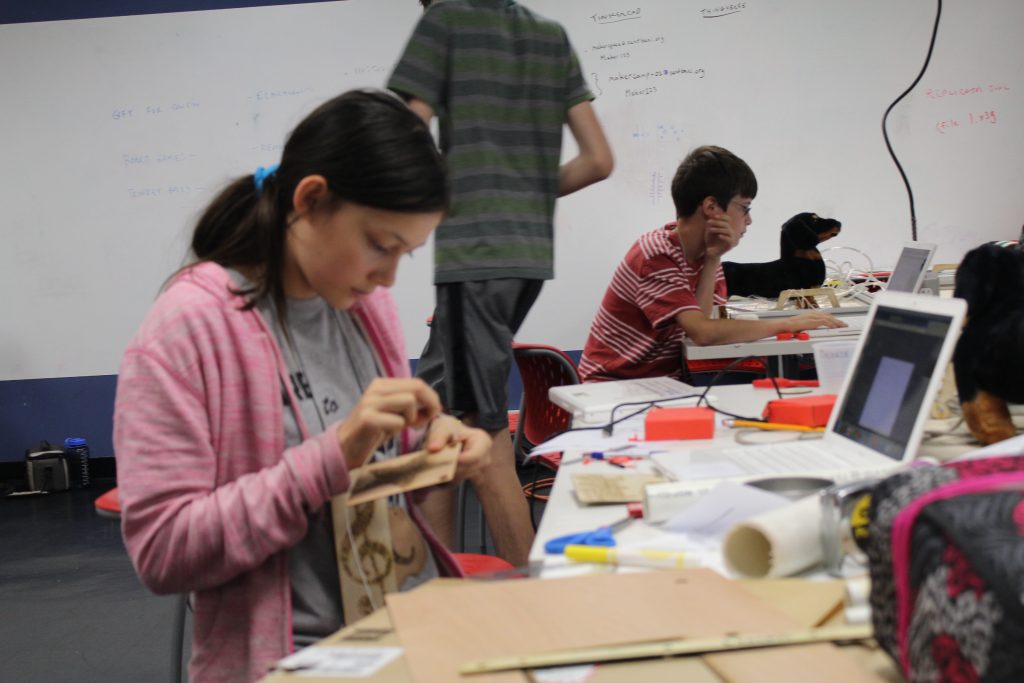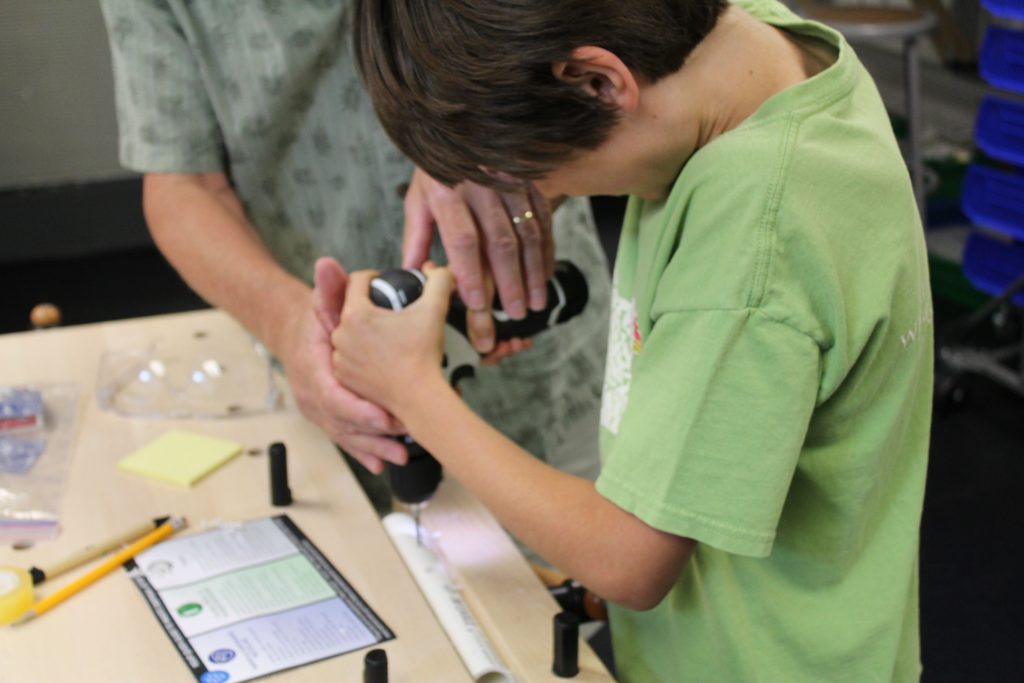by Brian O’Connell
This past summer, the CEEO held its first Mini-Makers workshop for young makers to learn how to use all the tools in Jumbo’s Maker Studio. A group of 9 students from 6th to 8th grade spent the week learning how to use the laser cutter, print on the 3D printers, how to hand solder electronics and much more. Led by PhD student Brian O’Connell and physics teacher Richard Danahy, students spent their first few days learning the tools through skill based activities and eventually began taking on larger, more opened ended and self directed challenges later in the week, giving them the opportunity to enhance and combine the skills they acquired.
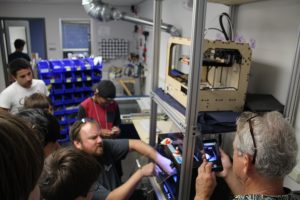
The first day started off creating with some stencil printing using paint and LEGOs. Once everyone arrived, they made custom name tags on the laser cutter, learning the design software and how to set up on the laser cutter. The next tool they learned about was the 3D printer, beginning to understand how to use it and all its idiosyncrasies by designing and printing their own custom LEGO minifigures. LittleBits came into play next to help them gain a basic understanding of circuits. The participants even showed some advanced critical thinking by reverse engineering what certain circuit components were by their effect on the entire circuit.
One of the most successful activities was learning to solder with SparkFun’s Simon Says Through Hole Soldering Kit. They started with learning all the safety concerns with soldering as well as some tips and techniques for a good job. In teams, they spent the majority of the day working on just that project, amazingly engaged throughout. By the end of the day, all groups had built themselves a new Simon Says game and moved onto more open ended design activities to hone their skills in designing for the laser cutter and the 3D printer as well as honing their understanding of such powerful tools.
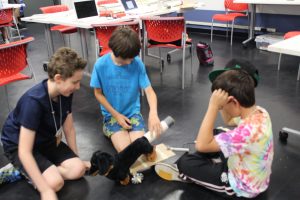
Half way through the week, the workshop started putting these new skills together and to better use through some structured engineering challenges. One we’ve come to enjoy recently has been designing to help a dog named Abby. Tufts Vet school provided us with a case study for a dachshund, Abby, who was partially paralyzed from a spinal injury. Using life size models, the students came up with their own solutions to help Abby regain her mobility. They began sketching out ideas on paper then trying them out on the models with cardboard, tape, string, and other found materials around the space. By the end of the day, those dachshunds wore crafted, 3D printed, and laser cut prototypes that would help them become mobile if they weren’t inanimate plush.
When given the chance to pursue their own projects, participants focused mainly on gifts for their friends and family but really worked on getting them just right through better use of the new tools they had been introduced too. We saw several iterations of a Doctor Who wall clock with Doctors 1 through 12 around the clock face, a few desk signs for mom, interesting mosaic etched and cut from acrylic, individualized 3d printed cases for their Simon Says kits, and even a custom chess set and board. Some students even had to be talked down from really great ideas that we sadly didn’t have the parts to accommodate but we’ll keep in mind for next year.
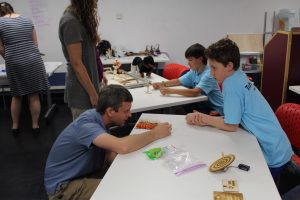
Every morning, students began work on their projects the instant they got through the door, continually improving through analysis and iteration. They got right on the machines, eager to try a new design or improve on an old one. Some students even noted that they had focused on one machine and actively tried engaging with the others to round out their experience. It was very exciting to see how they brought their ideas to life with these new skills. We finished out the week with a showcase where they not only displayed their final projects but also the earlier iterations so they could talk about their process and the decisions they made while iterating. It was very cool to see them reference their earlier attempts while presenting their creations to the staff and students at the CEEO as well as all the parents. It a great pleasure to help these students become mini makers; comfortable with some advanced manufacturing techniques and clever enough to make very interesting use of them.

